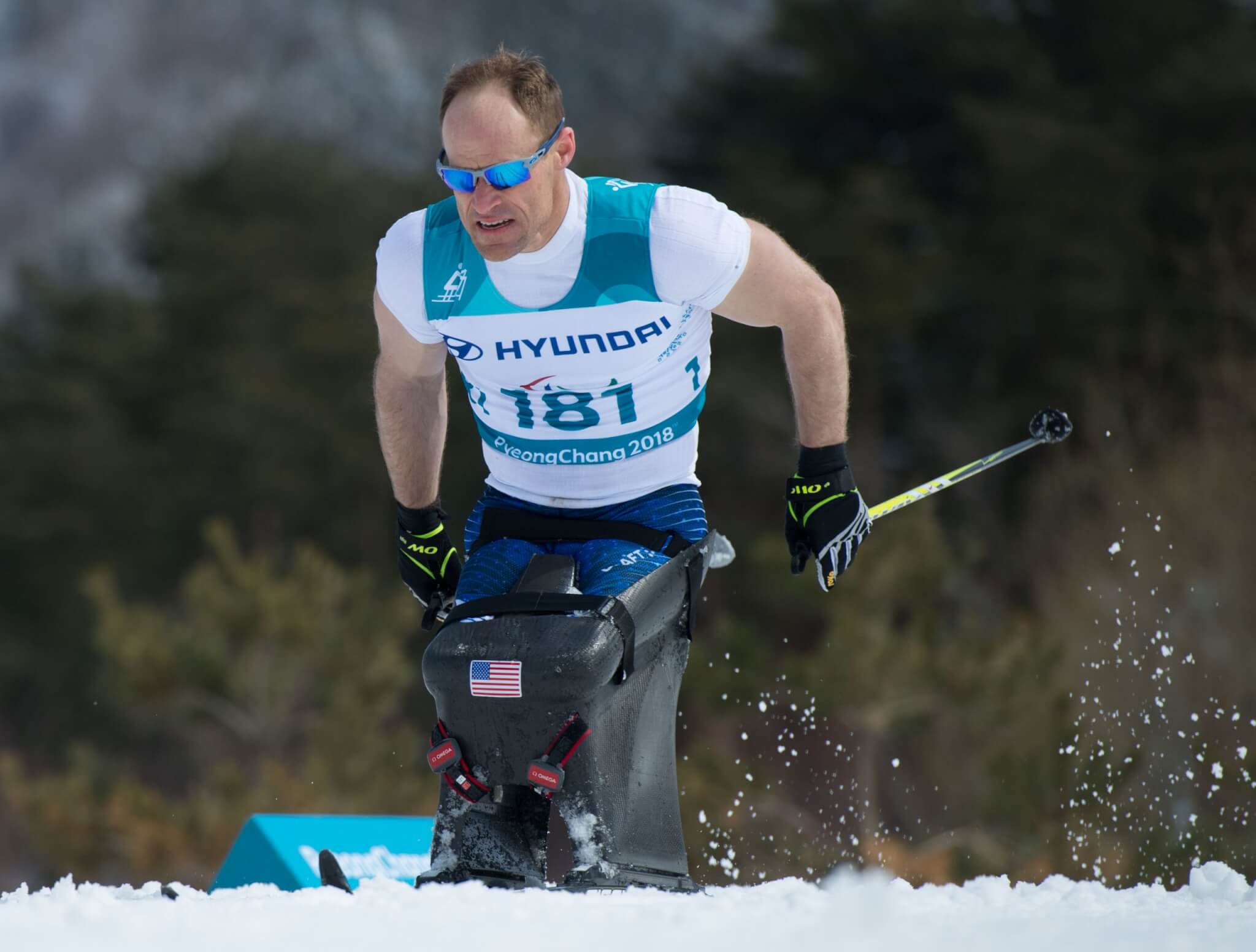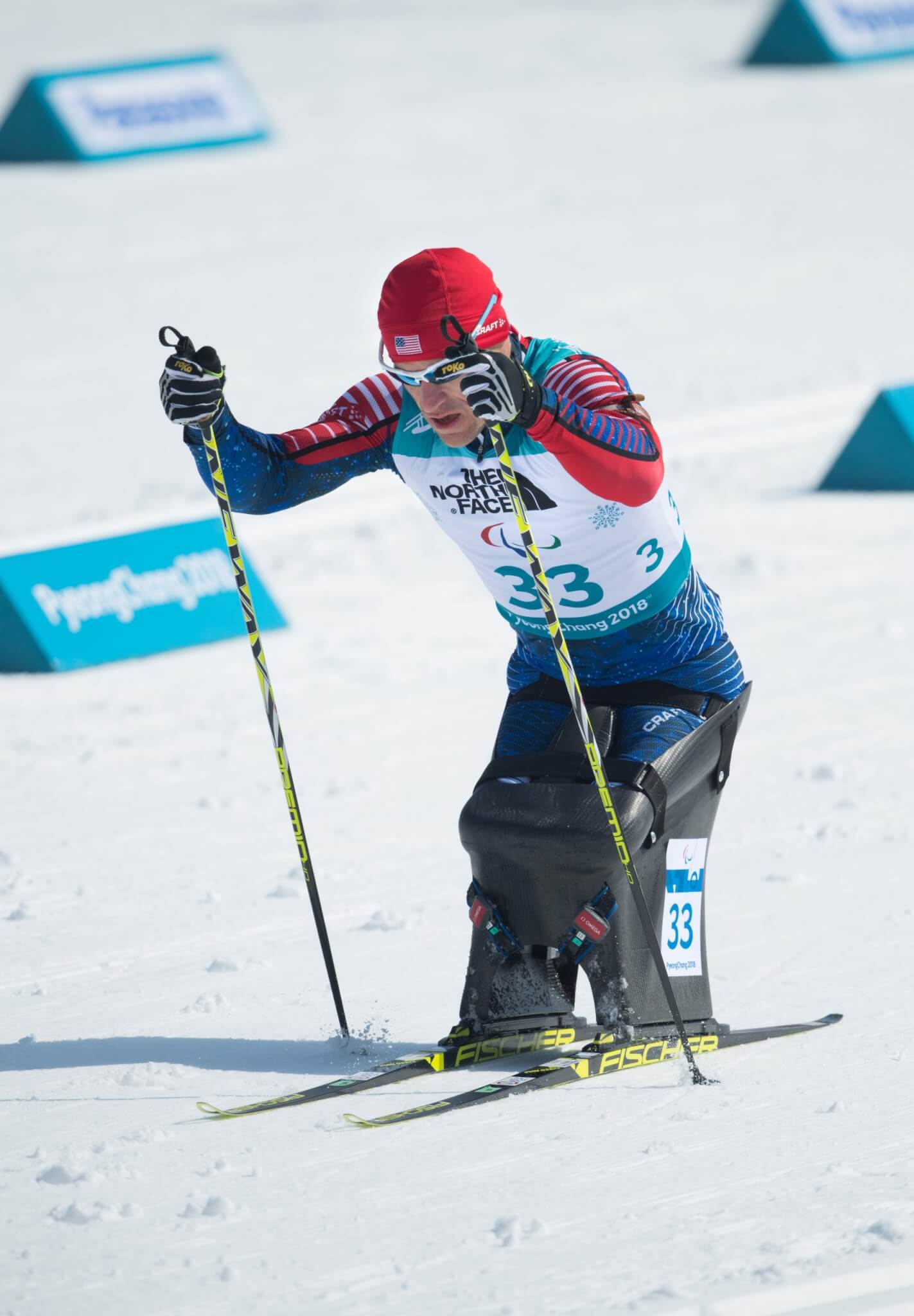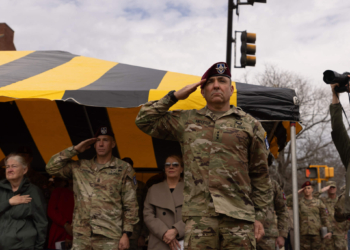Nearly two years after stepping on a roadside bomb in Afghanistan in 2009, Dan Cnossen left Walter Reed Medical Center in Bethesda, Maryland. The blast stripped him of his sense of purpose, at least temporarily. A pall of uncertainty was cast over his future.
“Things were flooding around, boiling around in my head,’’ Cnossen said.
The former lieutenant commander, who retired medically from the Navy in 2015, turned to adaptive sports. A two-time Paralympian, Cnossen, 40, returned from the 2018 competition in Pyeongchang, South Korea, with six medals, including a gold in the 7.5-kilometer biathlon.
Biathlon combines cross-country skiing with rifle shooting. The Paralympics are for athletes with physical, visual and intellectual impairments who meet various criteria. They first were held in Rome in 1960.

“It really is different to be part of Team USA, officially on a national team for the Paralympics, to go represent the country, and that has been a really special thing for me,’’ Cnossen (pronounced K-nossen) said. “Coming from the military background, it just really makes sense.’’
Cnossen grew up on a fifth-generation farm in Topeka, Kansas. Instead of working the land, he enrolled in the Naval Academy in 1998. He found time to join the school’s triathlon team — a club sport, as opposed to one sanctioned by the NCAA.
Cnossen began his military commitment after graduating in 2002.
Seven years later, an IED led to the amputation of Cnossen’s legs, along with several internal injuries. As he learned to become mobile again on prosthetics, he often wondered how he would be whole again, how he would manage tasks that formerly were so basic.
“In some cases, [I was] thinking, ‘Is this a really bad dream?’’’ Cnossen said. “[It was] denial and all of those stages and finally accepting that this is reality, and then the initial questions of, ‘What is my life going to look like? … How am I going to take a shower? How am I going to drive a car? What am I going to do?’”
Cnossen’s first experience with the Paralympics came in 2014 in Sochi, Russia. He competed as a sitting athlete in the biathlon and cross-country skiing but did not medal.
That changed four years later — and quickly. Cnossen competed in six events and medaled in all of them. His gold-medal performance came on the first day of competition, part of an overall haul that included four silvers and one bronze.

“I crossed the finish line, didn’t look at the screen, was eating a recovery bar, putting on my warmups, and someone was taking off the transponder for timing,’’ Cnossen said. “That person said, ‘An American finished first.’ I thought, ‘Well, what was his name?’ He said, ‘It’s a hard one to pronounce.’ Well, my other two teammates in that race had easier-to-pronounce names, so maybe it was me. Turned out it was me.’’
Cnossen’s former coach, Eileen Carey, is director of the U.S. Paralympic Nordic skiing program.
“What sets people apart at that level is the mental component, the ability to be on a big stage and the pressure and still focusing in on what you’re trying to do there competitively,’’ Carey said. “And also, the ability, quite frankly, to suffer. It’s a really hard sport.’’
Cnossen has been through much worse. Besides, he always enjoyed competing. The Massachusetts native has registered for local 5K and 10K running events and paddleboard races, but the Paralympics were on another level.
He is looking forward to doing more. The 2022 Winter Paralympics are scheduled for Beijing.
“There’s a lot of uncertainty right now in the athletic world,’’ Cnossen said. “I don’t know whether I will have a ski season this winter, so right now, my goal is to focus on my training plan, to focus on my preparation. What do I need to be doing today to make myself better?’’
Read comments






































